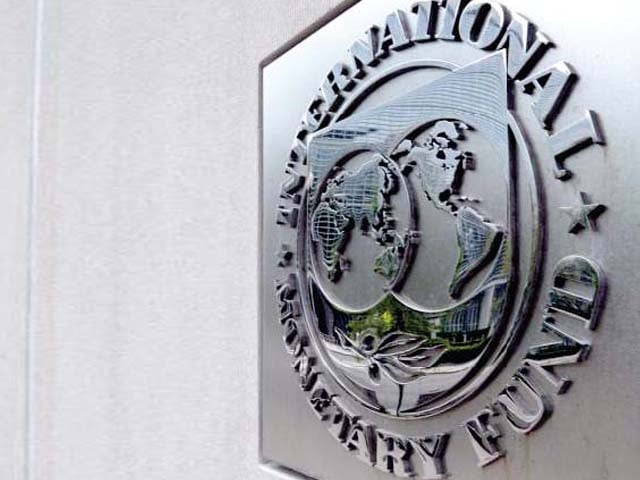Strong words: IMF accuses State Bank of indirectly fueling fiscal deficit
Urges more exchange rate flexibility which analysts interpret as letting the rupee slide further against the dollar.

Pakistan’s State Bank has become “too accommodative” and the country will miss targets in the wake of deteriorating external account and upcoming elections, says the International Monetary Fund in a strong worded message that is likely to unnerve the market.
Making public what the central bank is privately conveying to the Finance Ministry, the IMF said that Pakistan’s foreign currency reserves will fall to $12.1 billion by end June, enough for less than three months imports. The report also said that Pakistan’s financial sector stability was “at risk” due to rising non performing loans.
The strong worded note, issued after conclusion of Article-IV discussions by the IMF Executive Board, is likely to bring the rupee under further stress.
The IMF also criticised the State Bank of Pakistan terming it “too accommodative” and urged the central bank to further tighten monetary policy, provided external account keeps deteriorating and inflation keeps rising.
“The IMF has assessed the situation which is quite contrary to what the economic team has been conveying to the political leadership but it will surely bring the rupee under further pressure”, said Dr Ashfaque Hasan Khan- the Dean of Business School of National University of Science and Technology.
The IMF said that monetary policy has become more accommodative, with the SBP directly or indirectly, through liquidity injections via open market operations, financing the fiscal deficit. It added that the country’s budget deficit will widen to 7 per cent of Gross Domestic Product or Rs 1.46 billion, much higher than the projections being made by the Finance Ministry.
It said the external position, until recently a source of strength on booming exports and workers’ remittances, is deteriorating. The rupee has come under some pressure, prompting SBP exchange market intervention.
“Deterioration in the current account balance and the beginning of repayments to the IMF will likely put further pressure on the balance of payments this year, with reserves projected at $12.1 billion by end of 2011-12 fiscal year,” said the report
The IMF said that the Directors of the Executive Board stressed that monetary and exchange rate policies need to better focus on containing inflation and external risks. “Monetary policy is now too accommodative, and should be tightened if inflation or external pressures increase”. It called on the central bank to curtail financing of the budget and greater operational independence of the central bank needs to be secured. The directors also called for more exchange rate flexibility to facilitate external adjustment and safeguard foreign reserves - a suggestion that the analysts interpret as letting the rupee slip further against the US dollar and increasing the discount rate by the central bank.
It said Pakistan’s near- and medium-term prospects are challenging. Growth is expected to remain too low to absorb the large number of new entrants into the labour force, inflation would remain high, and the external position would weaken further. In 2011-12, real GDP growth is projected at 3.4 per cent and average CPI inflation at 12 per cent.
The report also asked Pakistan to improving banking sector oversight as the ratio of non-performing loans was rising. The IMF urged the authorities to address long-standing deficiencies in the regulatory regimes against money laundering and terrorism financing.
The only positive note was on new growth strategy. The Directors welcomed the adoption of the New Growth Strategy to guide structural and institutional reforms on a variety of fronts. They endorsed the authorities’ objective of further developing the private sector.
Published in The Express Tribune, February 7th, 2012.



















COMMENTS
Comments are moderated and generally will be posted if they are on-topic and not abusive.
For more information, please see our Comments FAQ